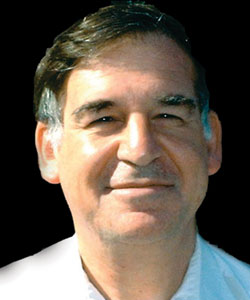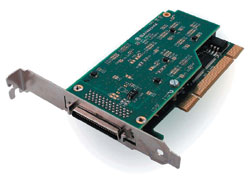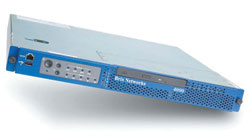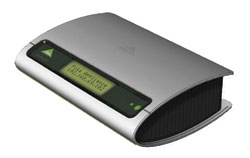|
April 2008 | Volume 11/ Number 4
Open Source
Talking with David Mandelstam, CEO of SangomaBy: Richard "Zippy" Grigonis
In a May 2000 reverse takeover, Sangoma Technologies became publicly traded on the Toronto Venture Exchange as Sangoma Technologies Corporation. Mandelstam holds a B (News - Alert).Sc. degree in Mechanical Engineering from the University of Witwatersrand in South Africa, a M.Sc. in Aerodynamics from the Cranfield Institute of Technology in the U.K. and a Bachelor of Commerce from the University of South Africa. RG: Has open source finally ‘matured’? DM: Open Source technology, telephony in particular, is at a very interesting stage where people are actually starting to make some reasonable amounts of money out of it. The field used to consist of relatively few people who did specialized products for specialized requirements: call centers, special PBX (News - Alert) configurations, special connections between old PBXs and new VoIP systems, that kind of thing. They were all individually engineered. People are now building appliances and PBXs and so on, more on a cookie-cutter, production-line basis. It’s quite a different business model. RG: I thought it was always difficult to make money with open source, because you don’t sell the thing itself, you sell the ‘surround stuff’ such as hardware and support. DM: Yes, it’s strange, because there’s this great big hole in the middle of the model, and it’s the ‘satellite stuff’ that generates revenue. People price this satellite stuff in ways which imply the value of the open source. They’ll sell something which you might think isn’t quite worth what they’re charging for it, but in conjunction with the open source software, it is in fact very much worth it. Take Red Hat’s server, which is not very different in price from Microsoft (News - Alert)’s server, but the bulk of it is ‘free’. Of course, in the end, nothing is absolutely free. But the trick is how to monetize your open source code. I mean, look at what’s happening to Digium (News - Alert) – they’re becoming a PBX company. They still make money from open source by doing peripheral stuff like selling cards, G.729 licenses, support and conducing training. In theory, they could take what they’ve got and just package it and sell it. It’s interesting how many people are happier to pay for something than to get it absolutely free. People who are uncomfortable wearing a beautifully done $125 suit of clothes will nevertheless proudly wear a $1,200 fashionable brand. RG: Is the open source industry evolving? DM: We’re pioneering a mixture, at the driver level, of open source and closed source projects. There are certain things open source does very well and there are other things that it doesn’t. Let’s take SS7, which has large certification costs in terms of time, effort and money. SS7 is a very poor candidate for an open source product because the payoff for certification is one or two installations for one or two customers. It just doesn’t work. Successful open source projects that don’t involve any kind of certification generally tend to be more pragmatic – such as Lippri. Nobody is going to take something like Lippri and try to certify the whole stack. First, you can get away without it, and secondly, it’s very expensive to do. But with SS7 you don’t have that choice – you must certify it, and so it just doesn’t work as an open source project. That’s why our SS7 software is a closed source product – we acquired the company that made it, in fact. Our code is amalgamated in such a way that it’s sufficiently isolated from open source so that no one can accuse us of any kind of license violation or whatever. After our SS7 success, we built our BRI card, bought a BRI stack and we amalgamated it into the Asterisk environment the same way we did SS7. The value of doing that could be seen just last week when we discovered a code bug, told the people who provided the code, and two days later we had a fix. If that had been an open source project, those issues would have hung around for some time before they would have been corrected. So there’s a place for proprietary code, and a place for open source code, and we’ll produce more closed source component projects. There nothing wrong with introducing proprietary stacks into the open source mix to improve the system. After all, somebody could say, ‘Asterisk voicemail is good, but I want to use my own superb proprietary voicemail system.’ And that can be amalgamated with the Asterisk code too – why not? IT Richard Grigonis is Executive Editor of TMC (News - Alert)’s IP Communications Group.
Open Source News
www.tmcnet.com/1798.1
www.tmcnet.com/1799.1
www.tmcnet.com/1800.1
www.tmcnet.com/1802.1
www.tmcnet.com/1803.1 Today @ TMC
Headlines
Upcoming Events
MSPWorld
The World's Premier Managed Services and Cloud Computing Event Click for Dates and Locations Corporate News
|
|





 David Mandelstam is the Founder, President and CEO of Sangoma Technologies (
David Mandelstam is the Founder, President and CEO of Sangoma Technologies (




